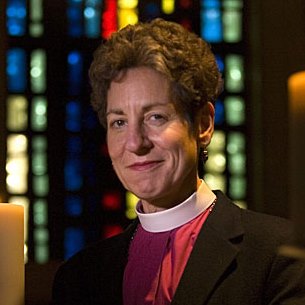Eyes to see: Finding Immanuel as immigrant, wanderer, child
In what form will you find the Christ child this year? The fact of the Incarnation in a weak and helpless babe says something significant about where we focus our search. I am convinced that it is part of our call to exercise a “preferential option” on behalf of the poor, weak, sick, and marginalized. The long arc of biblical thinking and theologizing has to do with seeing God’s care for those who have no other helper. Indeed, Jesus is understood as that helper for all who fail, by the world’s terms, to save themselves. More accurately, we understand that Jesus is that helper for all.
One of the great gifts of the way in which those in our cultural surroundings celebrate Christmas is the focus on children and on those who have few human helpers. We delight in the wonder of children as Christmas approaches, and many of us make an extra effort to feed the hungry, shelter the homeless, and care for the needy. The challenge is to let our seasonal “seeing” transform the way we meet our neighbors through the rest of the year, and through all the coming years. How might we begin to see that child in those around us: strangers and aliens (both Immanuel and Immigrants); wanderers (Homeless, like Mary and Joseph, for whom there was no room); widows and orphans (Social Outcasts); babe born in Bethlehem (Palestinian and Israeli alike; or the boy babies whom both Pharaoh and Herod sought to kill); divine feeder of thousands (Soup Kitchen worker); and savior of the world (Peacemaker, Bringer of Justice for All, Reconciler, Just and Gracious Lawgiver…). If God comes among us as a helpless child, then the divine presence is truly all around us. Where will you meet Jesus this Christmas?
Mensaje de Navidad 2007
Ojos para ver: Encontrar a Immanuel como inmigrante, vagabundo, niño
¿En qué forma encontrarás al niño Jesús este año? El hecho de la Encarnación en un bebé débil e indefenso dice algo significativo sobre dónde enfocamos nuestra búsqueda. Estoy convencido de que forma parte de nuestro llamado a ejercer una “opción preferencial” a favor de los pobres, débiles, enfermos y marginados. El largo arco de pensamiento bíblico y teologización tiene que ver con ver el cuidado de Dios por aquellos que no tienen otro ayudante. De hecho, Jesús es entendido como el ayudante de todos los que, según los términos del mundo, no logran salvarse a sí mismos. Más exactamente, entendemos que Jesús es ese ayudador para todos.
Uno de los grandes dones de la forma en que los de nuestro entorno cultural celebran la Navidad es el enfoque en los niños y en los que tienen pocos ayudantes humanos. Nos deleitamos con la maravilla de los niños a medida que se acerca la Navidad, y muchos de nosotros hacemos un esfuerzo adicional para alimentar a los hambrientos, albergar a los desamparados y cuidar a los necesitados. El desafío es permitir que nuestra “visión” estacional transforme la forma en que nos reunimos con nuestros vecinos durante el resto del año y durante todos los años venideros. ¿Cómo podríamos empezar a ver a ese niño en quienes nos rodean: extraños y extraterrestres (tanto Emmanuel como Inmigrantes)? vagabundos (vagabundos, como María y José, para quienes no había lugar); viudas y huérfanos (marginados sociales); bebé nacido en Belén (palestinos e israelíes por igual; o los bebés varones que tanto el faraón como Herodes intentaron matar); alimentador divino de miles (trabajador del comedor social); y salvador del mundo (Pacificador, Portador de justicia para todos, Reconciliador, Legislador justo y misericordioso …). Si Dios viene entre nosotros como un niño indefenso, entonces la presencia divina está verdaderamente a nuestro alrededor. ¿Dónde encontrarás a Jesús esta Navidad?
